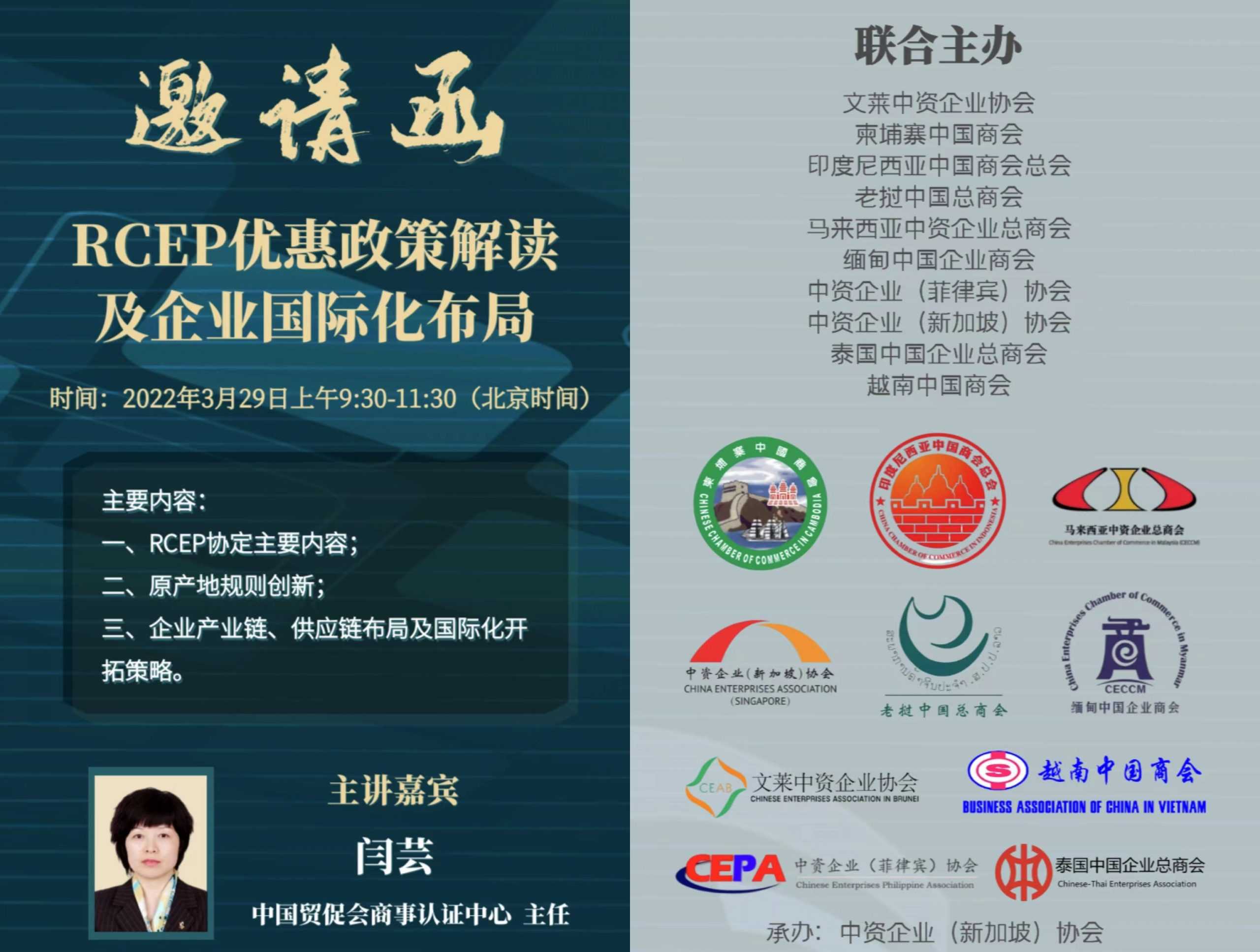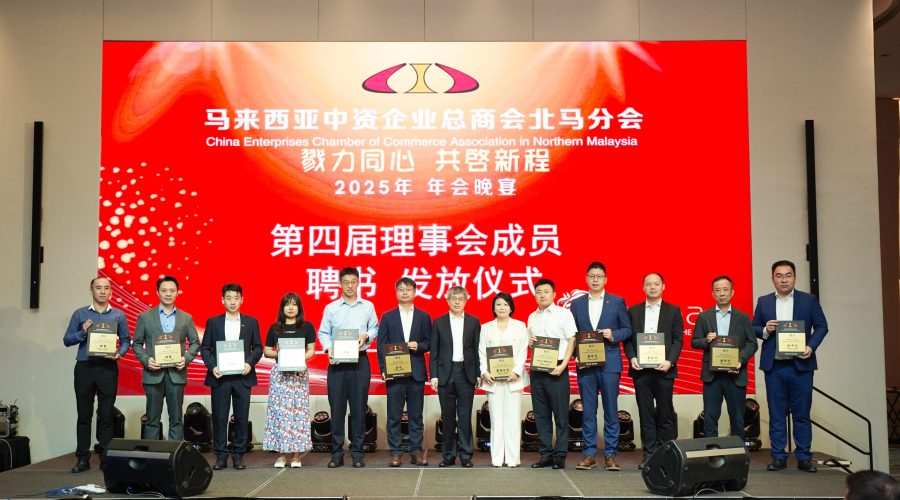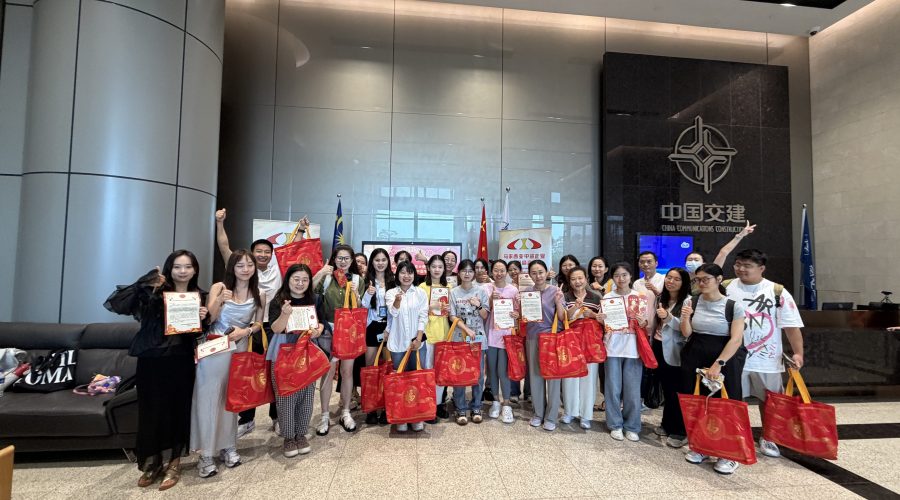
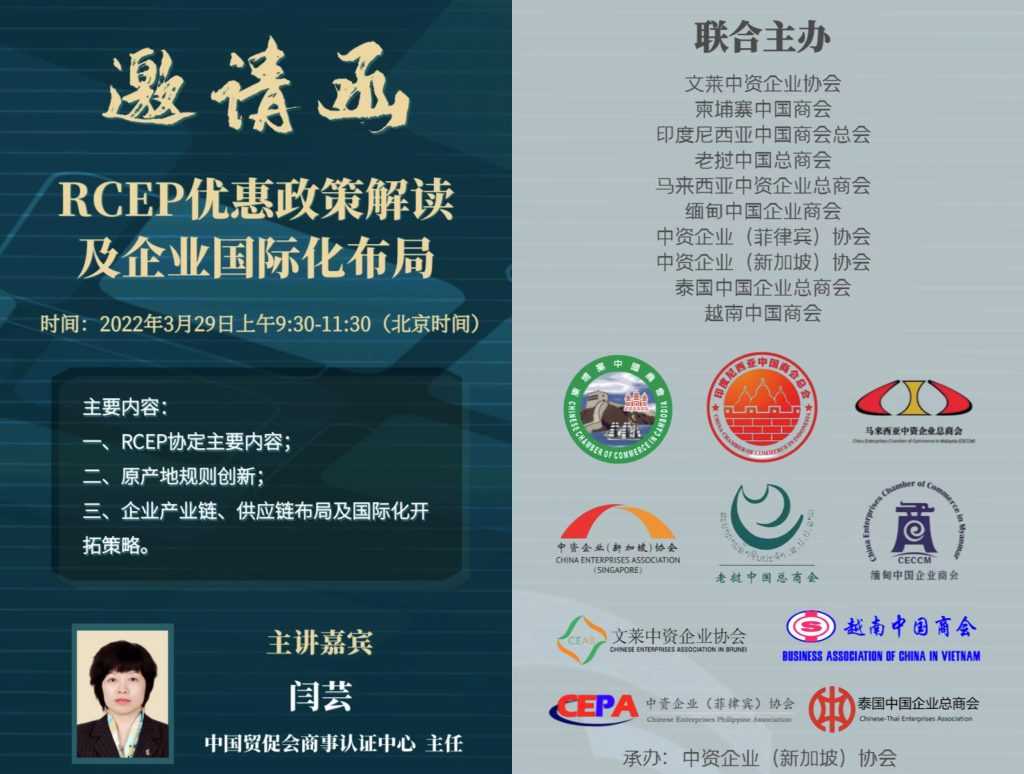
2022年3月28日,马来西亚中资企业总商会与中资企业(新加坡)协会承办的首期东南亚中资企业、文莱中资企业协会、柬埔寨中国商会、印度尼西亚中国商会总会、老挝中国总商会、缅甸中国企业商会、中资企业(菲律宾)协会、泰国中国企业总商会以及越南中国商会联合主办的首期东南亚中资企业RCEP培训讲座在线顺利举办。讲座特邀中国贸促会商事认证中心闫芸主任作为主讲嘉宾。线上共有来自东南亚各国中资企业的代表390人共同参会。
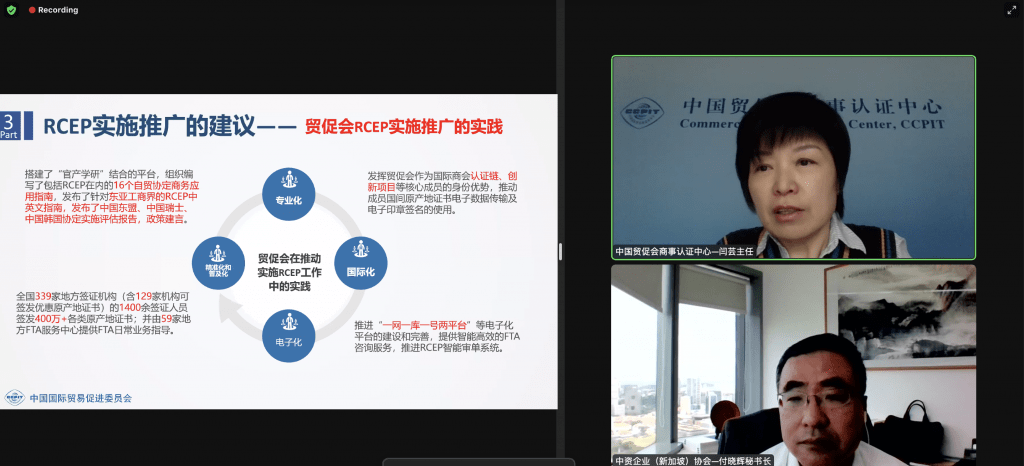
闫芸主任首先为参会者介绍RCEP协定的概况、包括其签署背景、签署意义、生效实施进展等情况。她针对RCEP协定的各主要内容版块进行解读,藉此剖析RCEP协定对区域经济增长及全球经济重塑的重大的意义。随后,她重点分析RCEP原产地规则的制度创新以及区域产业链、供应链、价值链的相互作用,探讨在此规则制度下为企业所带来的利与弊。她也透过分享RCEP实践应用策略和方法,为企业高效融入区域经济发展提供了专业和权威的建议。她也对中国贸促会在自贸协定实施推广中遇到的问题与症结、协定生效近两个月的绩效及未来的工作重点和合作方向进行了分享。
在最后的问答环节中,闫芸主任针对参会者提出的RCEP“货物累积”和“生产累积”的区别进行解答,并深度解析了未来RCEP将可能实施的“生产累积”对于企业供应链、产业链布局的影响。她就企业如何能够更好在国际市场开拓业务、妥善应对挑战的策略指导及对于RCEP实务应用等方面的问题进行详尽的解答。
_
On 28 March 2022, China Enterprises Chamber of Commerce in Malaysia (CECCM) and the China Enterprises Association (Singapore) together with Chinese Enterprises Association in Brunei, Chinese Chamber of Commerce in Cambodia, China Chamber of Commerce in Indonesia Chinese Chamber of Commerce, Laos Chinese Chamber of Commerce, China Enterprises Chamber of Commerce in Myanmar, Chinese Enterprise (Philippines) Association and Chinese-Thai Enterprises Association jointly organized the first RCEP training seminar for Chinese-funded enterprises in Southeast Asia. Yan Yun, Deputy Director-General of CCPIT Commercial Certification Center, was invited as the keynote speaker. A total of 390 participants from Chinese-funded enterprises in Southeast Asian countries attended the webinar virtually.
Director Yan Yun first introduced the general situation of the RCEP Agreement, including its signing background, significance of signing and the progress of its implementation. She then analysed the significance of the RCEP Agreement for regional economic growth and global economic reshaping. Subsequently, she focused on the institutional innovation of the RCEP rules of origin and the interaction of regional industrial chains, supply chains and value chains, and discussed the advantages and disadvantages of enterprises under this rule system. She advices enterprises to effectively integrate into regional economic development by sharing RCEP practical application strategies and methods. She also shared the challenges of the CSRC in the implementation and promotion of the FTA and the performance of the agreement in the past two months since its entry into force.
In the final Q&A session, Director Yan Yun answered the difference between RCEP “cargo accumulation” and “production accumulation” and deeply analysed the impact of “production accumulation” that may be implemented in the future RCEP on the supply chain and industrial chain layout of enterprises. The webinar was wrapped up by detailed answers to questions on how companies can better develop their business in the international market, properly respond to challenges and practical application of RCEP.


